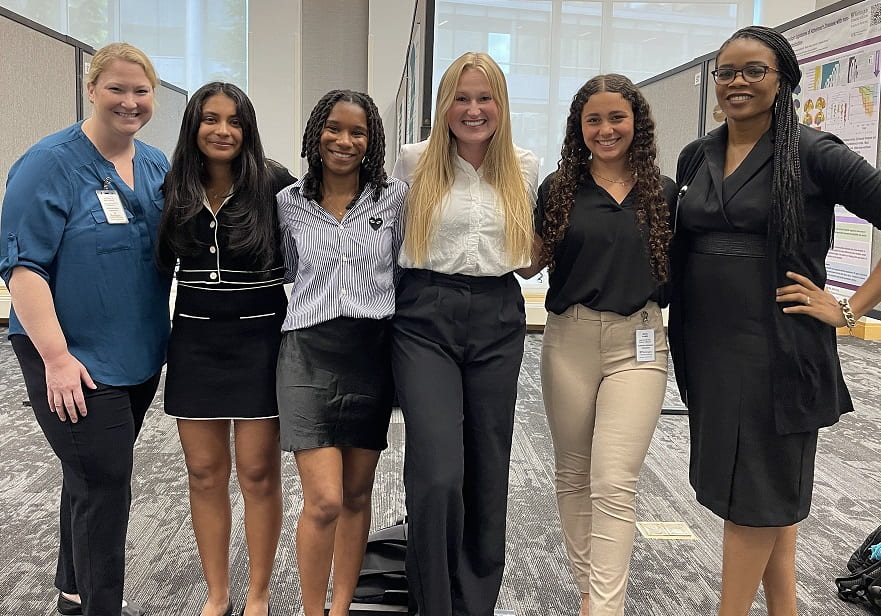Written by Saffron Patel, BS candidate at Washington University in St. Louis, and participant in the 2023 Institute for Public Health Summer Research Program

This summer, I have had the incredible opportunity to work in the Performance, Environment, and Participation Lab under the mentorship of Susan Stark, PhD, OTR/L, FAOTA. Professor Stark’s lab lies at the intersection of occupational therapy and aging research and its studies range from understanding how increased falls could be a marker of preclinical Alzheimer disease to understanding how to modify homes to prolong aging in place.
I was placed into Professor Stark’s lab as a member of this summer’s Institute for Public Health Summer Research Program – Aging and Neurological Diseases Track cohort. During the eight weeks of this program, I am incredibly grateful that my mentors at the Stark Lab have shown me a comprehensive view of the research process. My work this summer centered on a pilot study in which the Stark Lab collected social and structural determinants of health (SSDOH) as well as physical health data from a cohort of 11 African American older adults. Through this work, I have had the opportunity to learn about the process of designing a pilot study, selecting assessments, recruiting participants, collecting data and successfully executing a data collection event, reading scientific literature and using Endnote, analyzing data using SPSS, and finally presenting data through a poster and a manuscript.
Last week, I presented my research poster on “The Characteristics of a Sample of African American Older Adults Enrolled in Research” to the pre-Alzheimer Association International Conference symposium at the Knight Alzheimer Disease Research Center.

These findings are relevant because although African Americans are 1.5 to 2 times more likely to develop Alzheimer disease than their white counterparts, they are severely underrepresented in Alzheimer disease research. Therefore, through presenting these findings, the aim was to emphasize the importance of replicating this pilot study with a larger, more representative sample of African Americans. With a more comprehensive understanding of the SSDOH and physical characteristics of this population, researchers will be able to better recruit and retain African American older adults in future Alzheimer disease research. Furthermore, these characteristics may inform the way that researchers design future studies to promote inclusivity. This was my first time both creating a scientific poster as well as presenting my research at a symposium. I would like to thank my mentors at the Stark lab for teaching me how to communicate scientific findings to an audience! Attending the symposium was also an opportunity for me to learn about the myriad of exciting Alzheimer disease research taking place on the WashU campus. Through the Institute for Public Health Summer Research Program, I have attended seminars on topics ranging from overviews of Alzheimer’s disease, Parkinson’s disease, and Dementia, to stroke rehabilitation, and to clinical trials. It was incredibly enriching to be able to apply what I have learned about Alzheimer disease through these seminars when reading the other posters at the symposium. For example, during seminar, we learned about how the ApoE gene is the strongest risk factor for Alzheimer Disease. At the symposium, I learned about a study exploring the physiology of the ApoE gene and how its interaction with amyloid-beta may impact neurodegeneration.
I would like to thank the Stark Lab for making my summer research experience a wonderful learning and growing experience, and thank you to the Institute for Public Health and the Knight ADRC for making the program possible!